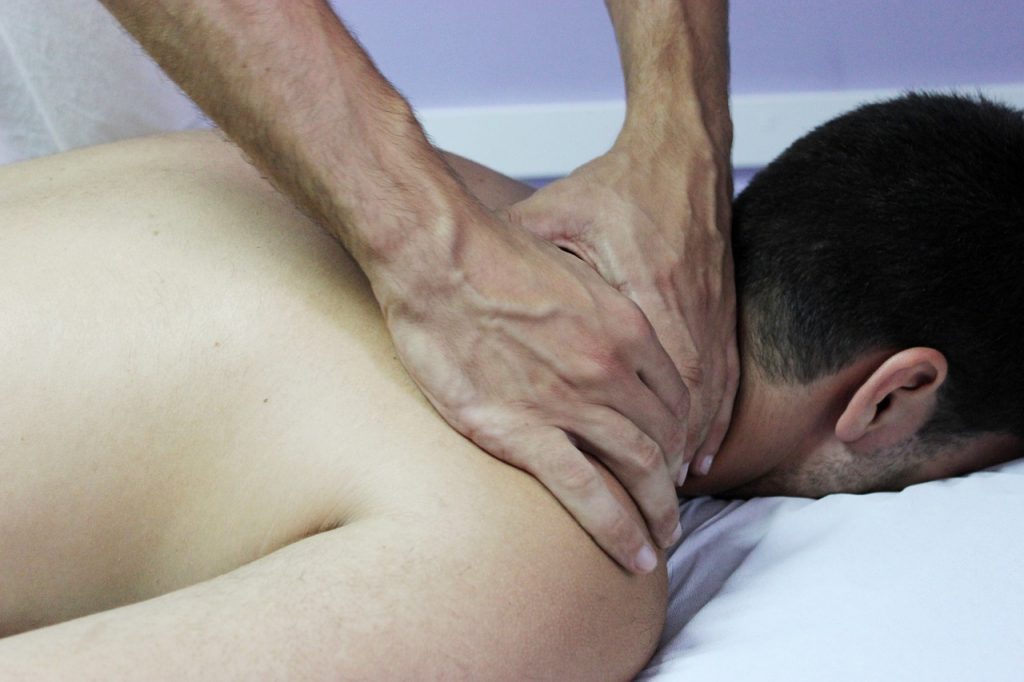What Is Osteopathy?
What Is Osteopathy?

Osteopathy is a method used to detect, prevent and treat health issues by massaging, stretching, and moving a person’s joints and muscles.
The principle of osteopathy is that the health and wellbeing of a person will depend on the fact that their muscles, connective tissue, ligaments, and bones are all working smoothly together.
Osteopaths are health practitioners that use physical stretching, massage, and manipulation which aims to:
- Increase joint mobility
- Relieve muscle tension
- Enhance blood supply
- Promote healing in the body
Osteopaths use different methods and techniques, but no surgery or drugs.
In the UK, osteopathy is recognised as one of the health professions that is regulated by UK law.
Even though osteopaths might use a few conventional medical methods, osteopathy use is not always scientifically based on evidence.
Here is what you can expect from an osteopath.
When Is Osteopathy Used?
Many people visit osteopaths to help them with various conditions affecting the joints, bones, and muscles. Some of these examples include:
- Elbow and shoulder pain (for example, tennis elbow)
- Lower back pain
- Arthritis
- Uncomplicated neck pain (as opposed to the neck pain caused by an injury such as whiplash)
- Issues with the legs, hips, and pelvis
- Sport-related injuries
- Joint or muscle pain caused by pregnancy, work, or driving
If you are pregnant, it is advisable to ask a midwife or a GP for advice before visiting an osteopath. It is also important to find an osteopath that specialises in joint or muscle pain in pregnant women.
Some of the osteopaths claim that they can treat conditions not directly related to joints, bones, and muscles, such as migraines, headaches, digestive disorders, painful periods, excessive crying and pain in babies (colic), depression, and anxiety.
Yet the evidence is still limited that osteopathy is a viable treatment for these problems.
How Does Osteopathy Work?
NICE, which stands for the National Institute for Health and Care Excellence suggests manual therapy combined with exercise as one of the treatment options for conditions such as lower back pain, without or with sciatica.
The evidence is limited when it comes to suggesting that osteopathy might be an effective treatment for certain types of shoulder, lower-limb, or neck pain, and for recovery after knee or hip operations.
At this stage, there is not enough evidence to support that this is an effective treatment for any health condition that is not related to the musculoskeletal system (the muscles and bones).
Here is more information about any evidence relating to osteopathy.
Accessing Osteopathy
Even though osteopathy is not available widely on the NHS, your local CCG (clinical commissioning group), or GP, may know whether these services are available close to you or in your direct area.
Many patients will pay privately for an osteopathy treatment. The costs for treatments vary but usually range from £35 to £50, which involves a 30 to 40-minute session.
You won’t need a referral from a GP in order to receive treatments privately from an osteopath. Many of the private Health Insurance carriers or providers will provide coverage for osteopathic treatments.
Only practitioners that are registered with GOC (the General Osteopathic Council) are permitted to call themselves or practise as an osteopath.
During the first session, an osteopath will ask you questions about your general health, symptoms, and whether you are receiving other types of medical care before they carry out your physical examination.
Osteopaths use their fingers and hands to locate areas of restriction, tenderness, strain, or weakness, especially your spine, and along with other points of your body.
You may be asked to take off some clothing, especially over the areas that need examining. The practitioner may also ask you to perform a few simple movements.
From here the osteopath will let you know whether they think they can help you to treat your problem, and what your treatment programme will involve.
Nutrition is also important for good health; a dietician in Hampshire can help.
